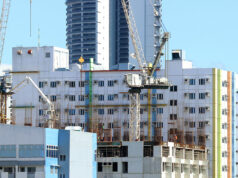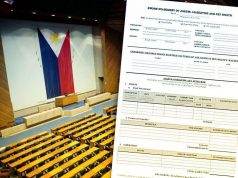Damosa says ecozone signals potential of agri-industrial parks
DAVAO CITY — The Anflo Industrial Estate in Panabo City said it signed four new locators this year, with a cold storage facility, signalling the potential of agri-industrial parks despite the pandemic.
“Throughout the year, I kept on speaking on how the Anflo Industrial Estate was one of the prime spots in our portfolio, and sure, this is what the experts were saying, they were saying all along that industrial businesses, warehousing, these were businesses that were resilient,” said Ricardo F. Lagdameo, vice president of Damosa Land, Inc., which owns and manages the agri-industrial park.
The 63-hectare complex, accredited by the Philippine Economic Zone Authority (PEZA), is positioned for agriculture-based manufacturing and light industry.
The new locators this year are banana chip exporter Southern Harvest, Inc., PMR Pallet Ltd. Co., FoamPack, Inc., and Danish building technology licensee Connovate Philippines, Inc.
Mr. Lagdameo said the ecozone is closing the year with about 500 active workers, up from around 300 at the start of the year.
“That’s something that we are extremely happy about… despite the pandemic, people are being given job opportunities,” he said.
One locator is also expected to finish its facility by the end of the year. “So hopefully they’ll be starting their operations by January of next year,” Mr. Lagdameo said.
The cold storage facility is targeted to be running within the first quarter of 2021.
Current locators in the ecozone, which is adjacent to the Davao International Container Terminal, which is also owned by the Floirendo-controlled Anflo Management and Investment Corp., are mostly agricultural product processors and packaging firms.
Among these are Del Monte Fresh Produce Philippines, First Panabo Tropical Foods Corp., Phildutch Polymer, Inc., Davao Packaging Corp., Davao Zhenzhi Plastics Corp., Manly Plastics, Inc., CAMECO Realty Development, Fermon Corp., and Lane Holdings, Inc.
Real estate consultancy firm PRIME Philippines, in its fourth PRIME Radar Webinar last month, pointed to industrial market opportunities outside Luzon, particularly Cebu and Davao.
While Cebu is strong in medium and heavy industry, Davao’s potential is in the agro-based and food industries, the firm said.
Other ecozones in the region are the Davao Oriental Eco Industrial Park, Hijo Industrial Estates in Tagum City, and the Davao del Sur Economic Zone.
Davao City Chamber of Commerce and Industry, Inc. President Carlo B. Tria said while manufacturing and processing are primarily focused on export products, investors must also keep in mind the 25 million population of Mindanao which is in itself a significant market for consumer goods.
“You also have what we call the BIMP-EAGA (Brunei Darussalam-Indonesia-Malaysia-Philippines East ASEAN Growth Area). North Sulawesi Indonesia will need a lot of goods and so will Borneo. I foresee these areas to blossom over time so these, I believe, will be the future hot spots,” he said.
“It might make sense to at least relocate a portion of your capacity anywhere in Mindanao,” he added.
Other agro-industrial zones in Mindanao include the Phividec Industrial Estate in Misamis Oriental; the Bukidnon Agro-Resources Export Zone; one in Roxas, Zamboanga del Sur; and at least five in the Sarangani-South Cotabato-General Santos City cluster. — Maya M. Padillo



